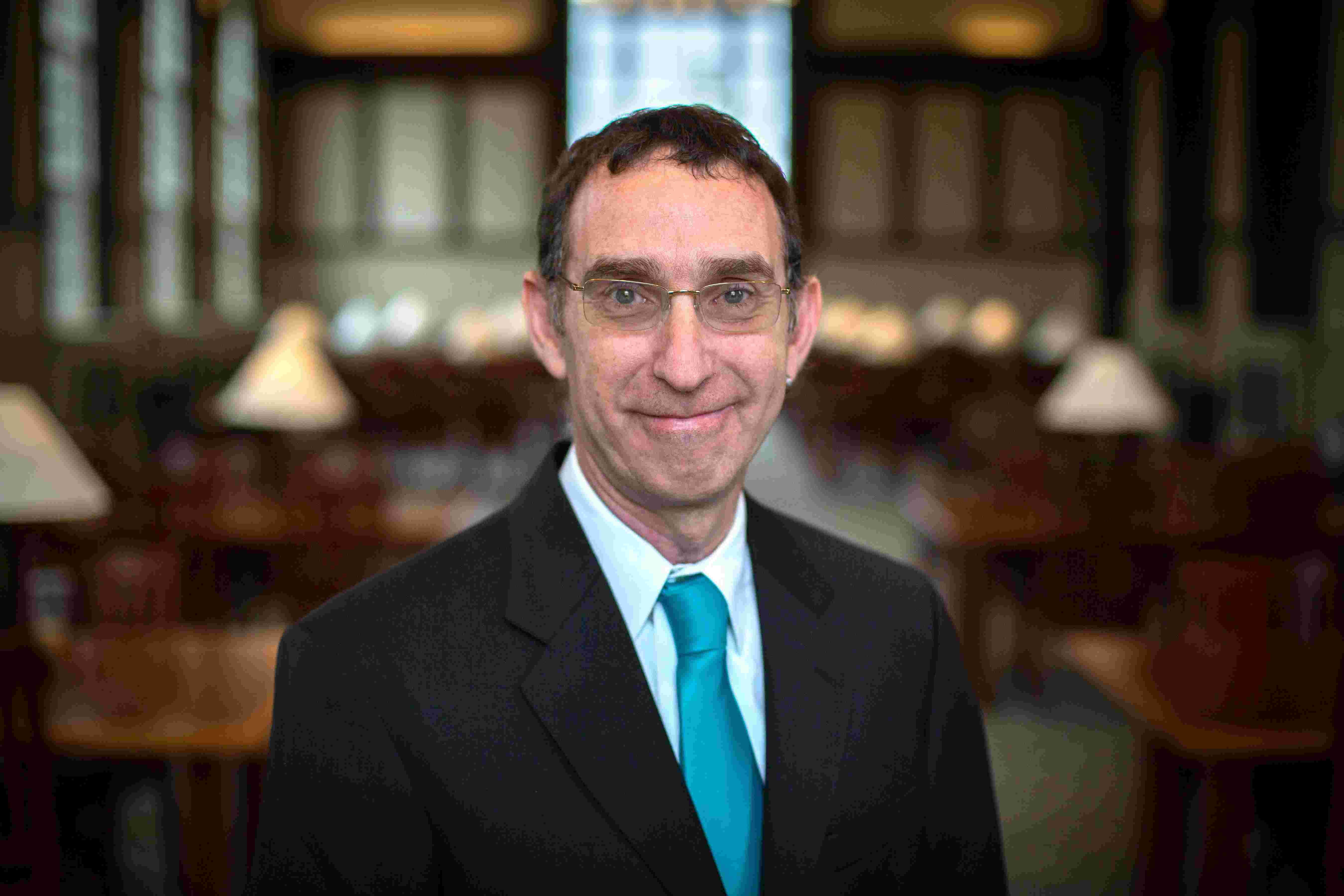Keynote Sessions
Opening Remarks
8:30 AM-8:45 AM, May 9, 2024
Speaker: Ofer Harel, Dean of CLAS
University of Connecticut
 Ofer Harel, Ph.D. is the Interim Dean of the College of Liberal Arts and Sciences and a professor in the Department of Statistics. Dr. Harel was the Associate Dean for Research and Graduate Affairs in the College of Liberal Arts and Sciences 2021-2023; the Director of Graduate Admissions at the Department of Statistics 2016-2021 and was a principal Investigator in the Institute for Collaboration on Health, Intervention, and Policy (InCHIP) at the University of Connecticut 2010-2016. Dr. Harel received his doctorate in statistics in 2003 from the Department of Statistics at the Pennsylvania State University; where he developed his methodological expertise in the areas of missing data techniques, diagnostic tests, longitudinal studies, Bayesian methods, sampling techniques, mixture models, latent class analysis, and statistical consulting. Dr. Harel received his post-doctoral training at the University of Washington, Department of Biostatistics, where he worked for the Health Services Research & Development (HSR&D) Center of Excellence, VA Puget Sound Healthcare System, and the National Alzheimer’s Coordinating Center (NACC). Dr. Harel has served as a biostatistical consultant nationally and internationally since 1997. Through his collaborative consulting, Dr. Harel has been involved with a variety of research fields including, but not limited to Alzheimer’s, diabetes, cancer, nutrition, HIV/AIDS, health disparities, anti-racism, and alcohol and drug abuse prevention. Dr. Harel is a member of the National Academy of Science, Engineering and Medicine’s Committee on Applied and Theoretical Statistics. Dr. Harel was a member of the (now restructured) Biostatistical Methods and Research Design (BMRD) Study Section at the National Institute of Health and was appointed to the Bureau of Labor Statistics Technical Advisory Committee (BLSTAC) at the U.S. Bureau of Labor Statistics among many national elected and appointed positions.
Ofer Harel, Ph.D. is the Interim Dean of the College of Liberal Arts and Sciences and a professor in the Department of Statistics. Dr. Harel was the Associate Dean for Research and Graduate Affairs in the College of Liberal Arts and Sciences 2021-2023; the Director of Graduate Admissions at the Department of Statistics 2016-2021 and was a principal Investigator in the Institute for Collaboration on Health, Intervention, and Policy (InCHIP) at the University of Connecticut 2010-2016. Dr. Harel received his doctorate in statistics in 2003 from the Department of Statistics at the Pennsylvania State University; where he developed his methodological expertise in the areas of missing data techniques, diagnostic tests, longitudinal studies, Bayesian methods, sampling techniques, mixture models, latent class analysis, and statistical consulting. Dr. Harel received his post-doctoral training at the University of Washington, Department of Biostatistics, where he worked for the Health Services Research & Development (HSR&D) Center of Excellence, VA Puget Sound Healthcare System, and the National Alzheimer’s Coordinating Center (NACC). Dr. Harel has served as a biostatistical consultant nationally and internationally since 1997. Through his collaborative consulting, Dr. Harel has been involved with a variety of research fields including, but not limited to Alzheimer’s, diabetes, cancer, nutrition, HIV/AIDS, health disparities, anti-racism, and alcohol and drug abuse prevention. Dr. Harel is a member of the National Academy of Science, Engineering and Medicine’s Committee on Applied and Theoretical Statistics. Dr. Harel was a member of the (now restructured) Biostatistical Methods and Research Design (BMRD) Study Section at the National Institute of Health and was appointed to the Bureau of Labor Statistics Technical Advisory Committee (BLSTAC) at the U.S. Bureau of Labor Statistics among many national elected and appointed positions.
Novel Design and Analysis for Rare Oncology Drug Development
8:30 AM-9:30 AM, May 10, 2024
Speaker: Shein-Chung Chow, PhD
Department of Biostatistics and Bioinformatics, Duke University School of Medicine Durham, North Carolina, USA
Shein-Chung Chow, Ph.D. is currently a Professor at the Department of Biostatistics and Bioinformatics, Duke University School of Medicine, Durham, North Carolina, USA. Dr. Chow was also a special government employee (SGE) appointed by the Unite States Food and Drug Administration (FDA) as an Oncologic Drug Advisory Committee (ODAC) voting member and Statistical Advisor to the FDA (2015-2017, 2019-2022). Between 2017-2019, Dr. Chow was on-leave for FDA as an Associate Director at Office of Biostatistics, Center for Drug Evaluation and Research (CDER), FDA. Dr. Chow was the Editor-in-Chief of the Journal of Biopharmaceutical Statistics (1992-2020) and is the Editor-in-Chief of the Biostatistics Book Series at Chapman and Hall/CRC Press of Taylor & Francis Group. He was elected Fellow of the American Statistical Association in 1995 and an elected member of the ISI (International Statistical Institute) in 1999. Dr. Chow is the author or co-author of over 350 methodology papers and 33 books including Design and Analysis of Bioavailability and Bioequivalence Studies, Design and Analysis of Clinical Trials, Analytical Similarity Assessment in Biosimilar Drug Development, Advanced Statistics in Regulatory Critical Clinical Initiatives, and most recently, Innovative Methods for Rare Disease Drug Development.
Abstract
For rare oncology disease drug development, the United States (US) Food and Drug Administration (FDA) indicated that same standards as for drug products in common conditions will be applied. To assist the sponsors in rare disease drug development, FDA has published several incentives to encourage the sponsors in rare disease drug development. In practice, these incentives programs may not help in achieving the study objectives due to the fact that there are only limited subjects with the disease under study available. To overcome this problem, some innovative thinking and/or approaches, without jeopardizing the integrity, quality, and scientific validity of rare disease drug development, are necessarily considered. These innovative thinking and/or approaches include, but are not limited to, (i) sample size justification based on probability statement rather than power analysis, (ii) demonstrating not-ineffectiveness and not- unsafe rather than demonstrating effectiveness and safety with limited sample size available, (iii) the use of complex innovative design such as two-stage seamless adaptive trial design and/or n- of-1 trial design for flexibility and efficient assessment of the test treatment under study, (iv) the use of real-world data (RWD) and real-world evidence (RWE) in support of regulatory submission, and (v) benefit-risk assessment for a complete picture of the clinical performance of the test treatment under investigation. In this presentation, we provide a comprehensive summarization of these innovative thinking and approaches for an accurate and reliable assessment of a test treatment for treating patients with rare disease under study. In addition, an innovative approach that combines these innovative thinking and approaches is proposed for regulatory consideration in rare oncology drug development.
Key Words: Composite hypotheses; Demonstrating effectiveness and safety; Randomized Clinical Trial (RCT); Real-World Data (RWD); Orphan Drug Development.
Transforming Healthcare with Basket Trials and Patient-Centric Tissue-agnostic Precision Medicine: A Visionary Approach
8:45 AM-9:45 AM, May 9, 2024
Speaker: Vivek Subbiah, MD
Sarah Cannon Research Institute, Nashville, Tennessee, USA
 Vivek Subbiah, MD, is Chief, Early-Phase Drug Development joined Sarah Cannon Research Institute (SCRI) in 2023. In his role, Dr. Subbiah oversees SCRI’s nine drug development units and leads the expansion of early-phase capabilities and programs across SCRI’s growing research network of more than 1,300 physicians at more than 250 locations in 24 states. Previously, Dr. Vivek Subbiah was at the University of Texas MD Anderson Cancer Center where he was an associate professor in the Department of Investigational Cancer Therapeutics. During his near 15-year tenure there, Dr. Vivek Subbiah held several leadership roles including executive director, Medical Oncology Research, MD Anderson Cancer Network as well as clinical medical director, Division of Cancer Medicine where he oversaw both the outpatient and inpatient clinical care delivery operations for the Phase I program.
Vivek Subbiah, MD, is Chief, Early-Phase Drug Development joined Sarah Cannon Research Institute (SCRI) in 2023. In his role, Dr. Subbiah oversees SCRI’s nine drug development units and leads the expansion of early-phase capabilities and programs across SCRI’s growing research network of more than 1,300 physicians at more than 250 locations in 24 states. Previously, Dr. Vivek Subbiah was at the University of Texas MD Anderson Cancer Center where he was an associate professor in the Department of Investigational Cancer Therapeutics. During his near 15-year tenure there, Dr. Vivek Subbiah held several leadership roles including executive director, Medical Oncology Research, MD Anderson Cancer Network as well as clinical medical director, Division of Cancer Medicine where he oversaw both the outpatient and inpatient clinical care delivery operations for the Phase I program.
Dr. Vivek Subbiah has served as the principal investigator in over 100 phase I/II trials and co-investigator in over 200 clinical trials and is known for his leadership in several first-in-human and practice-changing studies that directly led to approvals for over 15 indications from the FDA, European Medicines Agency, and other agencies across the world. He is an expert in tumor agnostic precision oncology and lead the BRAF and RET tissue agnostic studies to FDA approval. He has authored over 400 peer-reviewed publications in several high-impact journals such as The New England Journal of Medicine, Nature Medicine, Journal of Clinical Oncology, JAMA Oncology, Cancer Discovery, Lancet Oncology, Nature Reviews Clinical Oncology, Lancet Diabetes and Endocrinology, and Clinical Cancer Research. After finishing his medical education in India, Dr. Vivek Subbiah completed a combined residency program in internal medicine and pediatrics at Case Western Reserve University, MetroHealth, Cleveland, Ohio. He received board-certifications in both internal medicine and pediatrics and completed fellowships in both adult and pediatric oncology at MD Anderson.
Abstract
In the rapidly evolving landscape of cancer therapy, transformative strides have been made through the evolution of clinical next-generation sequencing, genomically targeted therapies, and immunotherapies. This talk, titled "A Visionary Approach: Transforming Healthcare with Basket Trials and Patient-Centric Tissue-Agnostic Precision Medicine," explores the pivotal role of well-designed clinical trials in advancing cancer understanding and improving patient outcomes. From N-of-1 trials to focusing on the emergence of basket trials, efficient modern trial designs assessing therapies in a tissue-agnostic setting across diverse cancer types based on molecular alterations, irrespective of histology, will be discussed. The keynote will provide insights into the evolution of basket trials in cancer drug development, decentralized trial design elements emphasizing their potential, and addressing current obstacles to propel personalized medicine into the forefront of healthcare innovation.